TRAVELLING WILL
STIMULATE almost every photographer with a digital camera
to take
literally hundreds of images. Places, views, situations and people –
all serve as reminders of the many experiences during a memorable trip.
And India is no exception – colourful, vibrant, full of amazing
landmarks and many characters that provide fantastic subject matter for
the travelling photographer.
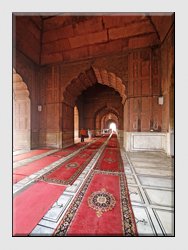
Once
home, the mail opened and the washing sorted, it’s time to sift through
the photographs. Unless we’re very lucky, many will be discarded.
Either because they are not technically very good, are repetitive, or
embarrassing!
Some will be okay to show to family and friends (this is where those
notes taken on the trip come into their own when it comes to explaining
where, who, and what was that?). Then there will be a few images that
will make you proud, and you’ll want to display them – maybe even offer
them to magazines, card shops, etc.
Sorting
the images takes quite a long time. Back in the days of film, this
rarely occurred. It’s the digital age that is responsible. It has given
us the opportunity to take as many photos as we like without costing a
small fortune. As long as we take enough memory cards and back-up
drives we don’t worry about running out of film.
When travelling with a group of family or friends, we tend to end up
with images of the same subjects from the same viewpoint, and sharing
our photographs when we return becomes pointless. This is where you
should try to be different and tell a story with your image portfolio.
A different
angle
When
faced with a subject or scene that catches your photographic eye, by
all means take the standard ‘postcard’ shot, but then look for a
different viewpoint. Maybe to the side or around to the back. I
deliberately took this image of the Taj Mahal from the other side of
the
river. Look for a position that conveys the feelings and
atmosphere of the place you are photographing.
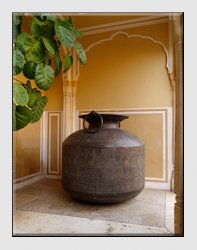
The light has great
influence on this and is a major factor in selecting a viewpoint. If
it’s not quite right, unless photographing a large or distant scene,
use flash to ‘fill-in’. Remember to set the intensity and angle of the
flash so that it lightens the dark areas without creating harsh
shadows.
golden triangle
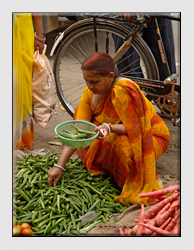
If possible, try framing to include surroundings and people where
appropriate. They are all part of the context of the image. The
colours, textures and composition of the piles of vegetables caught my
eye in an Indian market, but I chose to add character to the image by
including the lady in her brightly coloured sari.
Keep taking plenty of shots, but once that priceless image comes along,
vary the exposure, depth of field and position so that the decision
back at home is about which shot stands out from the others.
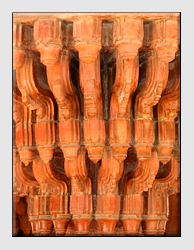 It’s all in
the detail
It’s all in
the detail
Overall shots of a street scene, building or
interior are all part of
the story, but images of the detail are just as important (such as this
wooden carved roof support). It is these which show the
materials used, the craftsmanship of the bygone age and the attention
to tiny detail.
golden triangle
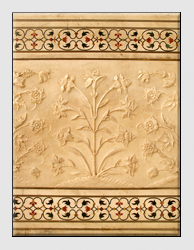
Close-ups help to convey senses as well. They help us to remember the
texture and, if the light is at the right angle, almost add a 3D effect
to the image. The viewer may also get an idea of what it would be like
to touch the surface of a well-lit tapestry or engraving.
golden triangle
Engage with
people
Once close to people ‘in their space’, involve them in the process of
taking the shot when possible. If they make it clear that they feel
imposed upon, don’t intrude.
A willing participant will usually be interested in a camera (not
recommended in deserted dark alleys!) and will show patience for more
than one shot.
Not all the best portraits are of a happy smile, and even when there is
a language barrier it’s surprising how many subjects will mirror the
exaggerated expression of the photographer. This image taken of the
musicians really sums up what it was like to walk the streets in
this Indian town and instantly brings back many memories.
golden triangle
Daily life
A significant part of all travel experiences is the observation of
daily life, whether in private or public. We often wonder what it’s
like to live in some places oversees when we see it on a television
documentary. It is with this question in mind that the photographer has
the opportunity to take home some images that help to provide an
answer.
golden triangle
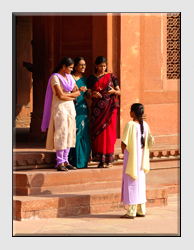
From shots of individuals going about their daily lives to groups
engaging in some common interest or sport; all of these give an
indication of the way in which others live. Their costumes, like the
Indian saris, and the ones worn by the people in these images,
environment, activities and expressions all tell the tale.
It’s these
shots that are better taken from a slightly candid point of view, so as
to capture the way it really is without any unnatural posing.
Preparation for these shots with a telephoto lens is the order of the
day.
Positioning oneself in an inconspicuous place with something to lean
against for support will help. It’s rare that we can carry a tripod and
remain unnoticed.
golden triangle
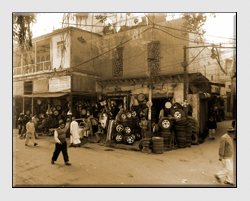
A shot like this can convey even more atmosphere if taken in or
converted to monochrome. Experiment with black and white, sepia or
other duotones.
golden triangle
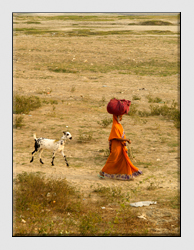 Equipment
Equipment
How much? As much as the luggage allowance
will permit. I am always
grateful that my Olympus equipment does not weigh me down like a
packhorse.
All of the shots in this article were taken with an E-400
carried in a small bag with just two lenses and a tele-converter. The
rest of the gear stayed in the vehicle and hotel safes.
golden triangle
toptips
1
Look for alternative viewpoints of the typical landmarks. ‘Must
visits’ in this area include the National Museum, the Red Fort and Qutb
Minar in Delhi; Agra Fort and, of course, the Taj Mahal in Agra; Hawa
Mahal Palace and Jantar Mantar observatories in Jaipur; and Samode
Palace. A camera permit is required in many locations and is usually
available locally and is very cheap.
2 Pay
attention to the light. A building can look totally different at
different times of the day.
3
Involve people but never intrude. Only give to beggars if you are
prepared to be pursued forever afterwards.
4 Take
plenty of back-up-batteries, memory cards (camera body – even if
it’s just a small compact)
5
Modern cameras have lots of features and capabilities – not just
buttons but lengthy menus as well. Don’t miss that golden shot by
fumbling to remember how to use them.
TIPS FOR
TRAVELLING IN INDIA
• The climate in Delhi, Agra, Jaipur and Samode is good in February –
not too hot, mainly dry and cool and night. Other parts of India may be
different.
• Travelling by road is easy and cheap, but a good guide (there are
many who speak English well) will offer a better insight into the
history, etc. Some are keen on photography themselves so will know some
good sites that provide some ‘out of the ordinary’ landscapes.
• To avoid ‘Delhi belly’, drink only bottled water, avoid ice in drinks
and anything washed in water without being cooked, such as salad.
• Allocate a whole day for obtaining your Visa from the India High
Commission in London. The procedures are archaic.



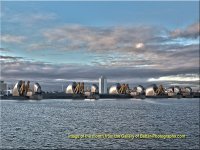

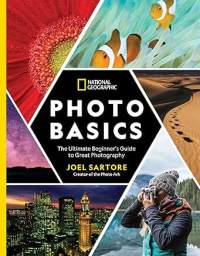
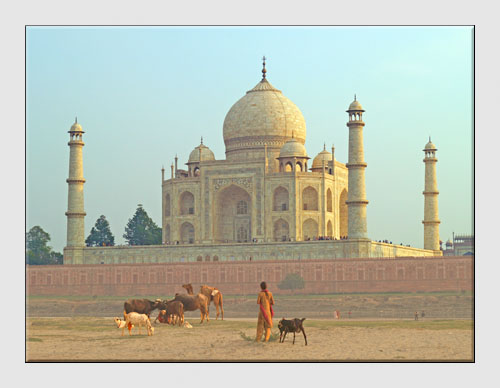
 Once
home, the mail opened and the washing sorted, it’s time to sift through
the photographs. Unless we’re very lucky, many will be discarded.
Either because they are not technically very good, are repetitive, or
embarrassing!
Once
home, the mail opened and the washing sorted, it’s time to sift through
the photographs. Unless we’re very lucky, many will be discarded.
Either because they are not technically very good, are repetitive, or
embarrassing!



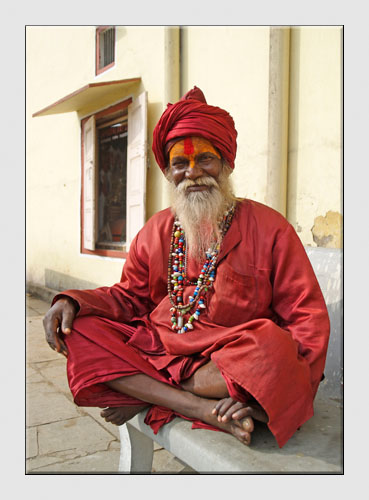
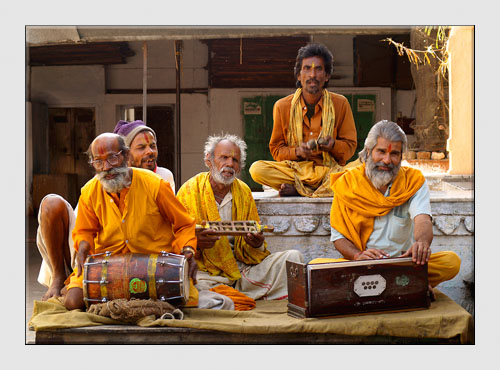



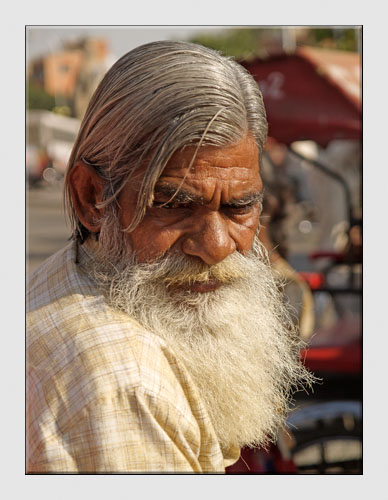
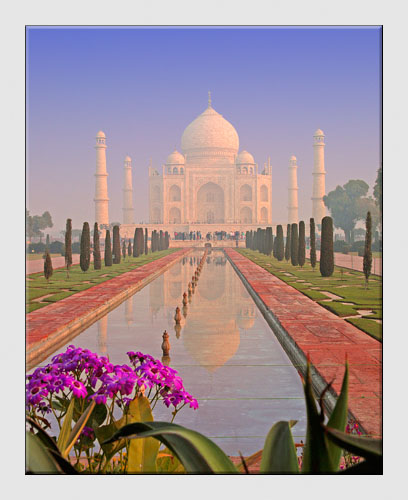

New! Comments
Have your say about what you just read! Leave me a comment in the box below.